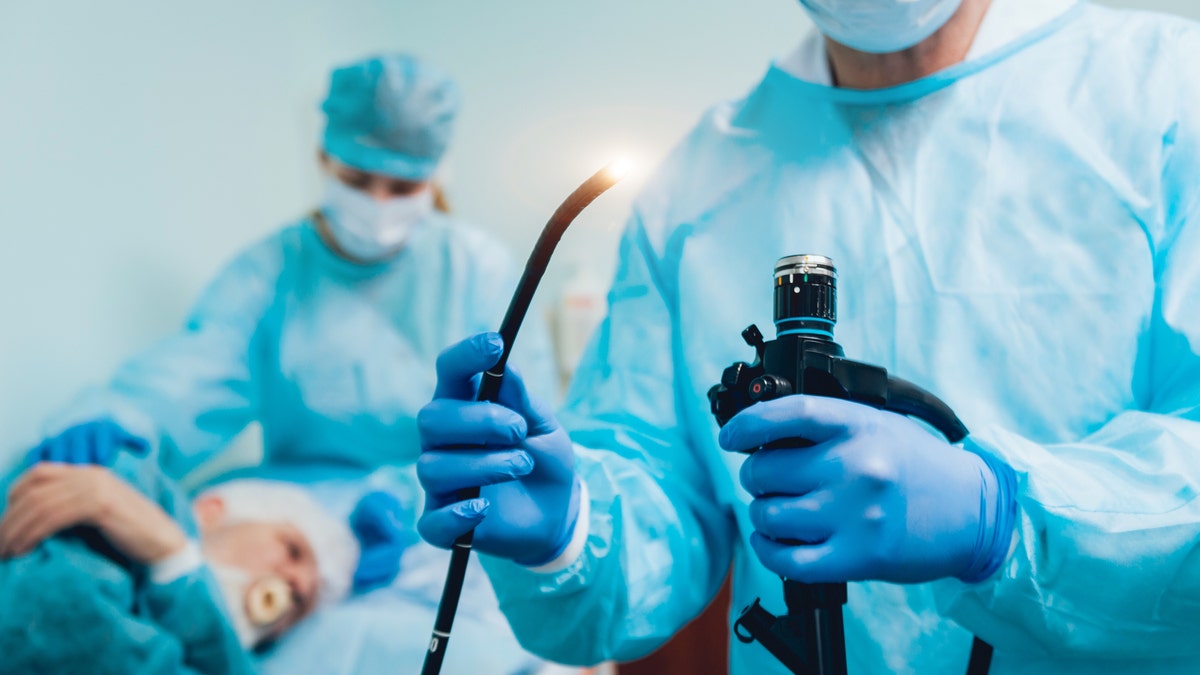American Nurses Association launches relief fund amid coronavirus crisis
American Nurses Association president Dr. Ernest Grant speaks out on need for protective equipment and supplies.
Get all the latest news on coronavirus and more delivered daily to your inbox. Sign up here.
The coronavirus epidemic in the U.S. has many Americans putting a pause on regular life, embracing the new “normal” that is social distancing and remaining home-bound. But the epidemic has also delayed important medical-related screenings, as the Centers for Disease Control and Prevention (CDC) has urged patients to delay any elective surgeries or procedures at this time.
Affected by such recommendations are routine colonoscopies, which the American Cancer Society recommends every 10 years for those 45 years of age or older who are considered at an “average risk” of developing colorectal cancer.
CLICK FOR COMPLETE CORONAVIRUS COVERAGE
Citing recommendations from the American College of Gastroenterology, the American Gastroenterological Association and the American Society for Gastrointestinal Endoscopy, among others, Dr. Joseph Vicari, a gastroenterologist and the chair of the Practice Operations Committee with the American Society for Gastrointestinal Endoscopy, told Fox News in an email that a “screening colonoscopy should be postponed at this time and rescheduled to a future date."
“Current recommendations are to postpone and reschedule all elective non-urgent procedures,” he added.

“Preparations administered to cleanse the colon for colonoscopy do not impair the immune system and would not increase the risk for coronavirus infection,” said Dr. Joseph Vicari. (iStock)
But what about for those who have previously been diagnosed with colon cancer, or have had polyps — small clumps of cells that generally form on the lining of the colon or rectum and can sometimes develop into cancer — removed? According to Vicari, the advice is the same: postpone.
"Surveillance colonoscopy after treatment for colon cancer and surveillance colonoscopy for a personal history of colon polyps are non-urgent procedures that could be postponed and rescheduled to a future date,” he said, though he noted that “some surveillance colonoscopy could be a higher priority and may need to be performed."
“Colonoscopy for a family history of colon cancer is an elective non-urgent procedure. The colonoscopy should be postponed and rescheduled to a future date,” he added.
CORONAVIRUS ‘RAPID ESCALATION AND GLOBAL SPREAD’ HAS WHO CHIEF ‘DEEPLY CONCERNED,’ HE SAYS
That said, there are some instances where a patient may need to undergo a colonoscopy despite current recommendations, such as if unexplained rectal bleeding or anemia occurs, as well as “imaging suggestive of malignancy and findings suggestive of a new diagnosis of Crohn’s disease or ulcerative colitis,” he said.
“Preparations administered to cleanse the colon for colonoscopy do not impair the immune system and would not increase the risk for coronavirus infection,” added Vicari.





















